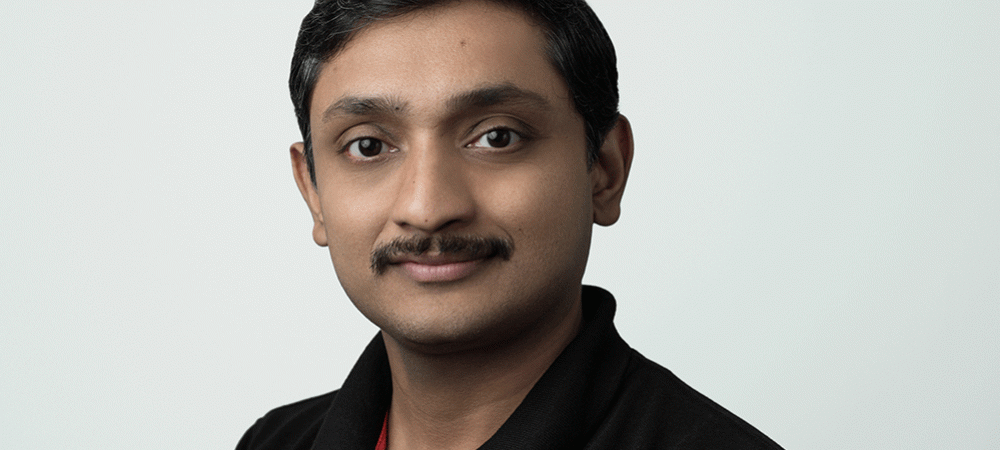On the lighter side of things, we ask Gibu Mathew, Vice President and General Manager, Asia Pacific, Zoho Corporation, about what makes him tick.
What would you describe as your most memorable achievement?
I joined Zoho 20 years ago, and its fundamental business model hasn’t changed since those early days. We’ve always taken an organic approach to product development. By that, I mean we build, not buy, and we build in-house, using common technology platforms. That’s motivating for employees and, in recent years, it’s kept us ahead of some cloud competitors, which have had to acquire other businesses to try to match our offerings. Seeing the value of that investment in our internal capability increase over time has been a great thing and having an opportunity to see it happen is most rewarding.
What first made you think of a career in technology?
My first exposure to programming came in college, back home in India, when we were required to undertake some coding in C, as part of a practical exercise. I was enrolled in mechanical engineering and enjoyed it well enough, but after my interest was piqued, I started thinking about switching over to a computing job. Towards the end of my course, I did. The constantly changing technology landscape grabbed my attention then, and it still hasn’t let go!
What style of management philosophy do you employ with your current position?
I’d rather focus on outcomes than activities and doing that effectively means avoiding micro-management and staying open to feedback from the team. In my experience, this approach allows the odd mistake to happen but, more importantly, it keeps people engaged, which means they’re more likely to stick around for the long-term.
What do you think is the current hot technology talking point?
Cybersecurity is the absolute standout. In the scenario in which we now find ourselves, it’s critical. Businesses having a lot of people working from home and embarking on an unprecedented amount of Digital Transformation means a different intensity of focus is required. If companies don’t want to become statistics, ensuring basic security practices are followed diligently is absolutely vital. I see the Zero Trust network approach increasingly becoming the norm, as a result, given its effectiveness in boosting the safety of corporate networks and data. This, along with ensuring great digital experiences of cloud services, are going to be key differentiators for global businesses.
How do you deal with stress and unwind outside the office?
Aligning myself with work I enjoy helps to keep my stress levels low. It’s also important to make the most of your down time. Going cycling with the kids is always enjoyable, as is my other sporting pastime – playing badminton. It’s very popular here in Singapore. There are plenty of good courts all over the city, and they’re a great place to meet friends or make friends.
If you could go back and change one career decision what would it be?
Listening to your parents isn’t necessarily something young people want to do, but from time to time, it turns out they know what they’re talking about! My dad encouraged me to pursue a degree in computer science, rather than mechanical engineering, from the get-go. If I’d taken his advice, I guess I would have saved a little bit of time, but it hasn’t made a difference in the long run.
What do you currently identify as the major areas of investment in your industry?
The COVID crisis has given Digital Transformation a real second wind. It’s awakened everyone to the possibilities of technology, and it’s been a wake-up call for some businesses that may have been lagging behind on their journeys. That said, Digital Transformation is a blanket term that means different things to different organizations. For some, it will be about coming up with a whole new operating model, while for others it could mean embracing ecommerce for the first time. Each industry and organization will need to think through its Digital Transformation use case, but it’s certainly something that’s become top of mind for decision-makers across the board.
What are the region-specific challenges when implementing new technologies in APAC?
APAC is so multi-faceted. Its mix of advanced and advancing economies is unique, and connecting with customers in the advancing territories can take quite some time. Their business communities are typically dominated by small and medium-sized enterprises and, when engaging with them, vendors may need to play an educational role initially. Gaining their confidence and getting products localized can also be a challenge. That’s where great partners come in. Finding them and building mutually beneficial relationships can be critical to long-term success in the region, but it’s not something that happens overnight.
What changes to your job role have you seen in the last year and how do you see these developing in the next 12 months?
Like many ICT people with a regional role, my life used to have a lot of travel. Being effectively grounded since March has meant a real change of work nature. During the pandemic, a lot of effort has been about being educational in nature – best practices for getting work done from home, security aspects and supporting other initiatives to enable services for businesses to continue working through the changed business scenario. Conversely, COVID-19 has forced everyone from the C-suite down to learn how to do things differently and that it is possible to get a lot of work done online.
What advice would you offer somebody aspiring to obtain a C-level position in your industry?
Aligning yourself with a company’s vision and philosophy helps you to grow and enable your career to advance. In my opinion, it’s imperative to seek out an organization whose mission and direction you actually like and value – it’s an uphill struggle otherwise! Hard work obviously helps, but so does a ton of luck.
Click below to share this article

